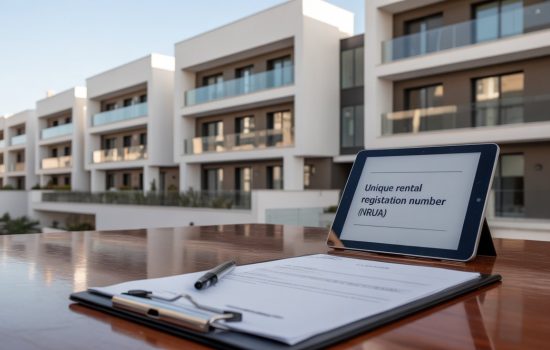
Understanding Non-Resident Income Tax (IRNR) on Property Ownership
If you are a non-resident in Spain and own a property — even if it is not rented out and not sold — Spanish tax law requires you to declare and pay tax on a deemed income based on the cadastral value of your property.
This concept often surprises foreigners, as many countries do not impose taxes simply for owning a second home. However, in Spain, it is a standard fiscal obligation.
Why Does Spain Tax Property Ownership?
Spanish tax authorities presume that owning a property provides an economic benefit, even if it does not generate active rental income. This presumed benefit is called imputed income (“renta imputada”), and it must be declared annually through the Non-Residents Income Tax (IRNR) system.
In short: If you are a non-resident and own a property in Spain, you must file a tax return and pay tax based on the property’s value — even if the property remains empty.
Importantly, the obligation is per property and per owner:
- If a property has two owners, each owner must declare their share of the imputed income individually.
- If you own more than one property, you must declare and pay taxes for each property separately.
How Is the Imputed Income Calculated?
- Tax Base:
- 1.1% of the cadastral value if the cadastral value has been revised in the last 10 years.
- 2% of the cadastral value if it has not been revised recently.
- Applicable Tax Rates (IRNR 2024):
- 24% for non-residents from outside the EU, Iceland, or Norway.
- 19% for non-residents who are tax residents of the EU, Iceland, or Norway.
- Example:
If your property’s cadastral value is €100,000 (recently revised), the imputed income would be €1,100.
-
- If you are a non-EU resident, you would pay 24% of €1,100 = €264.
- If you are a resident of the EU, Iceland, or Norway, you would pay 19% of €1,100 = €209.
Tax Obligations After Purchasing
Owning a property in Spain also involves fulfilling several local and national tax duties:
- Town Hall taxes such as the IBI (Impuesto sobre Bienes Inmuebles), an annual property tax calculated based on the cadastral value.
- Non-Resident Income Tax (IRNR), which must be declared yearly even if the property is not rented out.
These obligations apply independently and must be handled correctly to avoid penalties or issues with the Spanish tax authorities.
Common Mistakes to Avoid
- Believing that only rental income is taxable.
- Assuming no tax is due if the property is only used for holidays or is left empty.
- Failing to declare imputed income, risking fines, interest, and tax audits.
Declaring and paying IRNR properly helps you avoid unnecessary legal and financial problems in Spain.
How Fuster & Associates Can Help
At Fuster & Associates, we specialize in assisting non-resident property owners with:
- Tax registration and compliance.
- Calculating imputed income accurately.
- Filing IRNR tax returns.
- Managing your Spanish tax obligations securely and efficiently.
Protect your property investment and enjoy total peace of mind.
We want to help you navigate all the legal complexities that comes to buying or selling a house in Spain, but this article is legal information and should not be seen as legal advice.
This is an automatic translation and needs to be reviewed.
- View more post about: IBI, Non-Resident Tax Return





